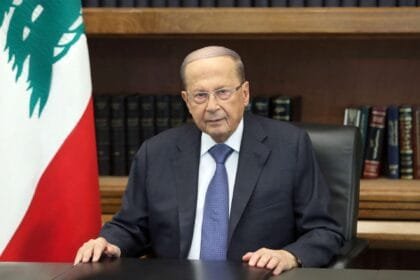Voice of Emirates – Tunisian President Kais Saied resorted to literary innuendo in his response to the popular protests that have gripped the country for several weeks.
He invoked a verse by Jarir, one of the most famous Umayyad poets known for his biting satire.
This invocation sparked widespread political and cultural controversy in the country.
The Tunisian president was delivering a speech in which he attempted to
reassure protesters against the economic situation and the high unemployment rate in Tunisia.
Saeed recalled a poem by Jarir in which he said: “I cooled Al-Farazdaq so I cut off his nose,”
in a metaphorical reference that many understood as a message of firmness and threat to his opponents.
The Tunisian president’s use of Arabic and Islamic poetry recalls a recent incident,
when Syrian President Ahmed al-Sharaa did the same during the recent Doha summit on Gaza.
Ongoing crisis
Tunisia has not enjoyed any political stability for more than 12 years.
Conflicts are constantly escalating between Parliament and the Presidency,
amid constant accusations from both sides.
At a time when the country is experiencing another state of deteriorating
economic conditions in addition to the ongoing political crises,
This led to his opponents accusing him of carrying out a coup against democracy.
In recent weeks, protests against President Kais Saied have escalated,
forcing him to resort to self-defense after adopting a harsh rhetoric against his opponents.
During which some of them were accused of working for foreign powers
and seeking to destabilize the country’s security and stability.
Saied faces intertwined challenges, most notably the stifling economic crisis
and declining public confidence in state institutions.
Anger is growing over security measures against opponents.
The escalation of protests coincided with a new political crisis within the ruling elite,
leaving the streets in a state of constant turmoil.
Linguistic and political crisis
Recently, President Kais Saied’s citation of a verse by the Umayyad poet Jarir sparked controversy in political
and cultural circles, echoing on social media.
Some considered his use of satirical verses from the Arab heritage to be part of
an attempt to project by using linguistic and poetic symbols.
While others considered it an escalation of official discourse and the transformation of culture into a political tool.
At a time when popular anger continues due to the deteriorating economic conditions and high unemployment rates,
Analysts believe the president is using literary rhetoric to convey multiple messages,
both domestically and internationally, at a time of political and social tension.
Projection onto reality
The president’s citation of a satirical verse from the Umayyad era seemed to some to be an expression of traditional linguistic culture, but at the same time,it revealed tensions in the relationship between the government and the people.
When poetry turns into a political weapon, symbolic meanings turn into direct signals that are read in the context of the crisis.
Observers believe that the metaphor of the “cut-off nose” image that Jarir used against his opponent Al-Farazdaq,contains symbolic meanings of humiliation and victory.
It is a dangerous metaphor in modern political discourse,
because it can be understood as a threat or contempt for opponents, rather than being merely rhetorical.
A crisis that transcends language
The current crisis in Tunisia is not merely a linguistic or literary debate,
but rather a comprehensive crisis of trust between the state and society.
The factors that fuel this crisis are still present and ongoing
as long as there are those who fuel it from within and without.
Especially in light of the continued presence of the Muslim Brotherhood’s symbols
and their attempts to control the scene from time to time,
In light of the authorities’ massive attempts to seize control of the situation
and find reasonable solutions to the crises facing Tunisian citizens,
Amidst the enormous challenges imposed by economic conditions
and attempts by certain groups to seize power over minor issues far removed from the will of the people.
Syrian President Ahmed al-Sharaa.
The Tunisian president was not the only one who used verses from the Arab heritage in his political speech in this way,
But Syrian President Ahmed al-Sharaa did it before him during his speech,which did not exceed seconds, at the recent Doha Summit.
In which he did not utter anything except one verse of poetry attributed to Ali Ibn Abi Talib, may God be pleased with him.
He said in it: “When you have an intelligent heart, a firm mind, and a strong nose, injustice will keep you away from it.”
It seems that the nose will continue to be a major factor in political discourse due to its well-known symbolism among writers.
















